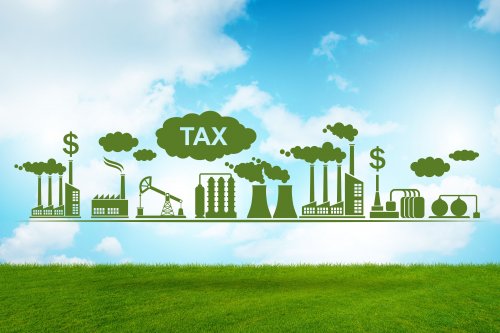The European Commission has published default values for greenhouse gas emissions for imported goods subject to the CBAM import carbon adjustment mechanism. This will help companies report in the absence of all necessary information on emissions during the transition period.
Such values do not apply to electricity imports, according to the Office of Sustainable Solutions.
It is noted that importers can submit CBAM reports based on this embedded emissions data during the transition period:
- the first three quarterly reports (4th quarter of 2023 and 1st and 2nd quarter of 2024);
- from the third quarter of 2024 to the end of 2025 – for complex goods with a limit of 20% of the total volume of built-in emissions.
The material emphasized that the default values will be regularly revised, in particular after the first reporting period for the 4th quarter of 2023. This will help take into account the collected data and feedback from the industry. The first report must be submitted by January 31, 2024.
It is noted that CBAM is a flexible system and during the transition period additional simplifications will be integrated into it, in particular:
- the possibility of recording data on the emissions of a certain product for reuse in subsequent reports – probably from April 2024;
- the ability to reproduce the previous report with an update of the number of imported goods;
- an option for reporting based on an XML file to automate the process to reuse data from previous reports;
- clarifying that the default reporting period for operators is twelve months so that they can collect representative data that reflects the annual operation of the installation.
The European Commission proposes to establish the reporting period either by the calendar or by the fiscal year. However, companies can also choose an alternative reporting period of at least three months if the installation belongs to the MRV system and the reporting period coincides with the requirements of that system.
"The Commission will continue to work on further simplification of reporting obligations and on how to facilitate the submission of certain business data directly from producers outside the EU to the CBAM Register until the second reporting period in 2024," the material emphasized.
It said the European Commission had also updated two guidance documents to help importers and facility operators report during the transition period. These documents contain a number of clarifications and corrections, electronic templates, etc.
As EcoPolitic reported earlier, in the EU, the transitional period of application of CBAM (Carbon Import Adjustment Mechanism) began on October 1. Until the end of 2025, importing companies only have to report on the level of carbon released into the environment during the production process, and from 2026 – to receive CBAM certificates for their products. The carbon duty applies to imports of cement, iron, steel, aluminium, fertilisers, electricity and hydrogen. The size of the carbon tax will be determined by the carbon content of goods. CBAM is a key tool of the EU in the fight against carbon emissions and a central element in achieving climate neutrality by 2050.





